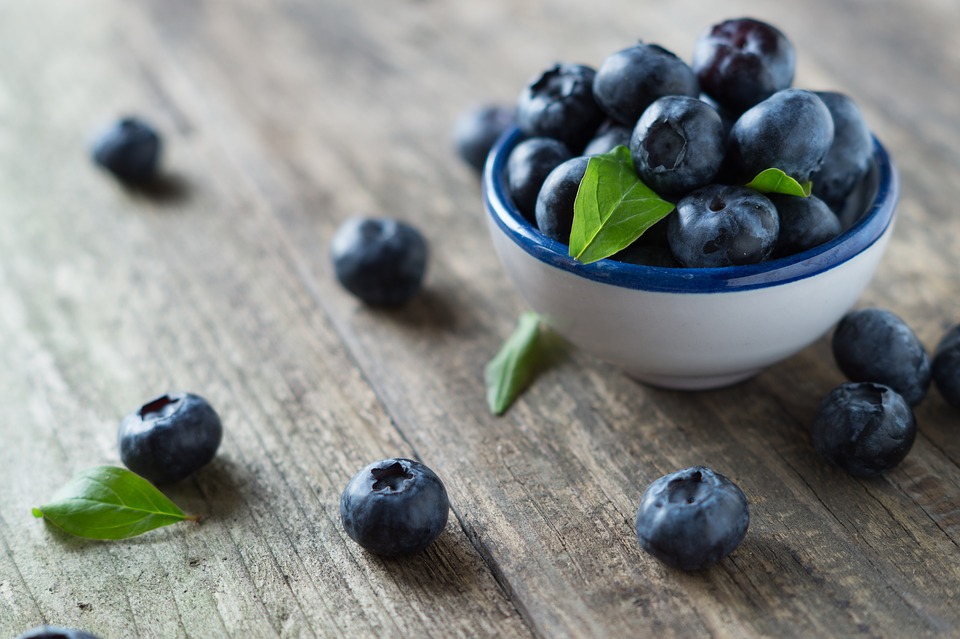Free radicals play a dual role in our body that can be both beneficial and harmful. Our body purposely creates free radicals to neutralize viruses and bacteria. These free radicals are unstable, highly reactive molecules that have one or more unpaired electrons. To gain stability, they attack stable molecules, triggering a chain reaction that damages healthy cells. When free radicals accumulate, they may cause a state known as oxidative stress. This may damage your DNA and other important structures in your cells. Sadly, chronic oxidative stress can increase your risk of chronic diseases such as heart disease. Aging itself is not a disease; rather, it is a normal process of any living species in the world.Fortunately, eating a diet rich in antioxidants can help increase your blood antioxidant levels to fight oxidative stress and reduce the risk of diseases. Natural antioxidants can be found in fruits and vegetables and are divided into three groups: vitamins, carotenoids and phenolic compounds.
The Main Benefits of Antioxidants
- Correct signs of age.
By neutralizing free radicals, antioxidants help limit not just the internal deterioration caused by aging, but also the outward physical effects. By scavenging free radicals, antioxidants canreduce the signs of aging by minimizing wrinkles, preserving the texture of the skin, and even reducing your susceptibility to sun damage.
- Combat Heart Disease
Antioxidants found in your morning coffee or tea, known as polyphenol antioxidants, help prevent heart disease. They work to prevent the oxidation of fat and thereby limit the internal inflammation that may increase risk of heart disease and diabetes.
- Fight Neurological and Mood Disorders
Thereis a link between free radicals and mood disorders like anxiety and depression as well as complex neurological diseases such as Parkinson’s and Alzheimer’s. Antioxidants work to combat neuroinflammation caused by free radical damage, which is thought to be a precursor to neurodegenerative diseases.
- Boost Body’s Natural Defenses
Free radicals are naturally formed by the body during exercise and through various energy processes in the body. At the same time, your body releases enzymes to keep these free radicals under control. Many antioxidants work by quenching free radicals need for an extra electron, thereby neutralizing these potentially harmful particles.
- Combat the Mental Effects of Aging
Antioxidants in berries, such as such as vitamins E and C, may help defray the effects of aging and prevent or even reverse memory loss. They do so by helping to improve brain cells ability to maintain long-term communication and establish strong connections.
- Improve Vision
Carotenoids, the pigments found in a number of fruits and vegetables. When consumed, these carotenoids form vitamin A in the body, which also has a protective effect. Vitamin A regulates the pigment produced by the retina, helping to protect your eyes from sun damage while maintaining the functionality of your low-light and color vision.
Top healthy foods that are high in antioxidants
- Dark Chocolate
Lucky for chocolate lovers, dark chocolate is nutritious. It has more cocoa than regular chocolate, as well as more minerals and antioxidants.Moreover, the antioxidants in cocoa and dark chocolate have been linked to impressive health benefits such as less inflammation and reduced risk factors for heart disease.
- Blueberries
Although they are low in calories, blueberries are packed with nutrients and antioxidants.Blueberries are among the best sources of antioxidants in the diet. They are rich in anthocyanins and other antioxidants that may help reduce the risk of heart disease and delay the decline in brain function that happens with age.
- Strawberries
Strawberries are among the most popular berries on the planet. They are sweet, versatile and a rich source of vitamin C and antioxidants.Like other berries, strawberries are rich in antioxidants called anthocyanins, which may help reduce the risk of heart disease.
- Artichokes
Artichokes are a delicious and nutritious vegetable. Peoplein ancient times used their leaves as a remedy to treat liver conditions like jaundice. Artichokes are also a great source of dietary fiber, minerals and antioxidants.Artichokes are rich in the antioxidant known as chlorogenic acid.
- Raspberries
Raspberries are soft, tart berries that are often used in desserts. They are a great source of dietary fiber, vitamin C, manganese and antioxidants.Moreover, the antioxidants in raspberries, especially anthocyanins, may reduce inflammation and oxidative stress.
- Kale
Kale is a cruciferous vegetable and a member of the group of vegetables. Other members include broccoli and cauliflower.It is one of the most nutritious greens on the planet and is rich in vitamins A, K, C and antioxidants. It is also a great plant-based source of calcium, an important mineral that helps maintain bone health and plays roles in other cellular functions.
- Red Cabbage
Red cabbage has an impressive nutrient profile. Also known as purple cabbage, it is rich in vitamins C, K and A, and has a high antioxidant content.Its red color comes from its high content of anthocyanins, a group of antioxidants that have been linked to some impressive health benefits.
- Beans
Beans are a diverse group of legumes that are inexpensive and healthy. They are also incredibly high in fiber, which can help keep your bowel movements regular.Beans are also one of the best vegetable sources of antioxidants. They contain the antioxidant kaempferol, which has been linked to anticancer benefits.
- Beets
Beets, also known as beetroothave a mild taste and are a great source of fiber, potassium, iron, folate and antioxidants.They’re particularly rich in a group of antioxidants called betalains. These give beets their reddish color and have been linked to health benefits.
- Spinach
Spinach is one of the most nutritionally dense vegetables. It’s loaded with vitamins, minerals and antioxidants, and is incredibly low in calories.Spinach is also a great source of lutein and zeaxanthin, two antioxidants that may help protect your eyes from damaging UV light and other harmful light wavelengths.
Sources: dermstore.com, healthline.com, lifegate.com, mentalfloss.com
